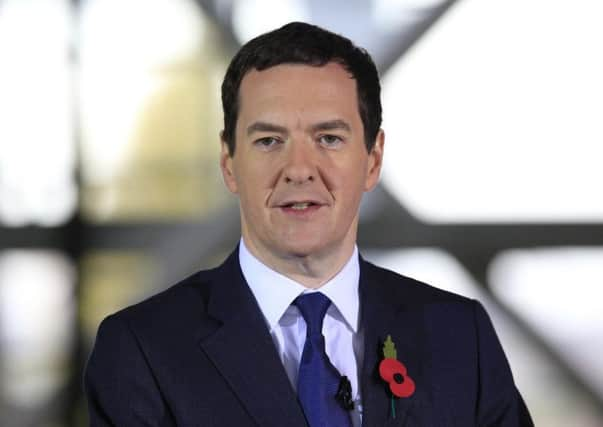Lack of SME finance awareness ‘could cost economy £20bn by 2020’


A study from GLI Finance and Cambridge University Centre for Alternative Finance found 80 per cent of lending to small and medium-sized enterprises (SMEs) was provided by four UK banks.
More than half (56 per cent) of SMEs surveyed said they were unfamiliar with any forms of alternative finance.
Advertisement
Hide AdAdvertisement
Hide AdThe report, which is backed by the Federation of Small Businesses (FSB), British Chamber of Commerce, National Association of Commercial Finance Brokers, Asset Backed Finance Association, Innovate Finance and techUK, urged the Government to “reduce concentration risk in the credit ecosystem” in order to protect from economic losses.
With SMEs responsible for 65 per cent of job creation, the economy could sustain £20bn in losses by 2020 as traditional lenders continue to withdraw funding, the study concluded.
Dr Louise Beaumont, head of public affairs at GLI Finance, said the alternative finance sector has played a “crucial role” in driving SME growth by helping firms increase turnover and profit while hiring more staff.
“The industry has started to fill a vital credit gap as traditional lenders have retrenched from the market in the wake of the financial crisis,” she said.
Advertisement
Hide AdAdvertisement
Hide Ad“The alternative finance industry has achieved a great deal in a short space of time but it is imperative the Government now leads the charge, supported by industry groups and industry itself, in order to ensure SMEs get the help they need to grow and that the alternative finance industry cements its position as a mainstream and complementary part of the financial services sector.”
The study reflects the findings of provisional findings of the Competition and Markets Authority’s (CMA) investigation into SME banking.
Last month, the watchdog revealed Lloyds Banking Group, HSBC, RBS and Barclays account for 80 per cent of the business current account market, generating revenues of £2.7bn per year.
According to GLI Finance investee platform Funding Options, banks have withdrawn £5.7m a day in small business overdrafts alone since 2011.
Advertisement
Hide AdAdvertisement
Hide AdThis has cut available credit by £8.4bn (from £20.9bn to £12.5bn) at an estimated cost to the economy of £2.9bn.
Despite Chancellor George Osborne’s plans to create a Northern Powerhouse fuelled by a strong and diverse economy away from London and the South East, the report found continuing geographic variance in how SMEs are treated by financial institutions.
Businesses in the North are more than twice as likely to have had overdraft facilities reduced or removed, with 55 per cent facing credit cuts as opposed to 25 per cent of London-based SMEs.
The report called for a “well-resourced awareness campaign” to improve knowledge of alternative finance options.
Advertisement
Hide AdAdvertisement
Hide AdIt urged the Government to support the implementation of the Small Business Enterprise and Employment Act’s mandatory referral scheme with a national awareness raising campaign in order to “change SME behaviour, drive structural change to the financial system, and facilitate economic growth”.
Dr Beaumont added: “Lack of awareness amongst SMEs of the financing options available to them – despite a plethora of well-intentioned documents, reports and guides for SMEs - is an issue that threatens to undermine the UK’s economic recovery.
“We must think less about individual policies and mechanisms in isolation and much more about the bigger picture.
“We need to do the simple things much more effectively to enable SME behaviour change, and to create an environment where the Small Business Enterprise and Employment Act can flourish to the benefit of SMEs.”
--
Advertisement
Hide AdAdvertisement
Hide AdThe Small Business Enterprise and Employment Act 2015 became law earlier this year.
Backed by the Department for Business, Innovation and Skills (BIS), it include a number of measures to improve access to finance for small and mid-sized firms.
Under the Act, banks are required to pass on details of SMEs they decline for a loan, with the firm’s permission, to online platforms which can help match them with alternative finance providers.
It overhauled rules around access to small business credit data, which BIS said would level the playing field between providers.
‘Cheque imaging’ was also introduced in the legislation to speed up cheque clearing times and increase customer choice in ways to pay.